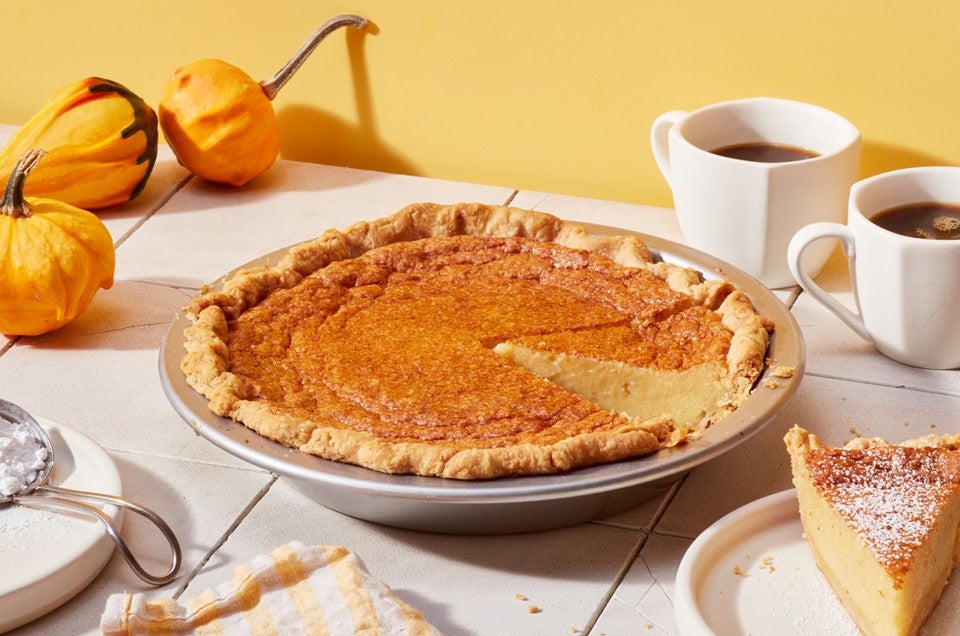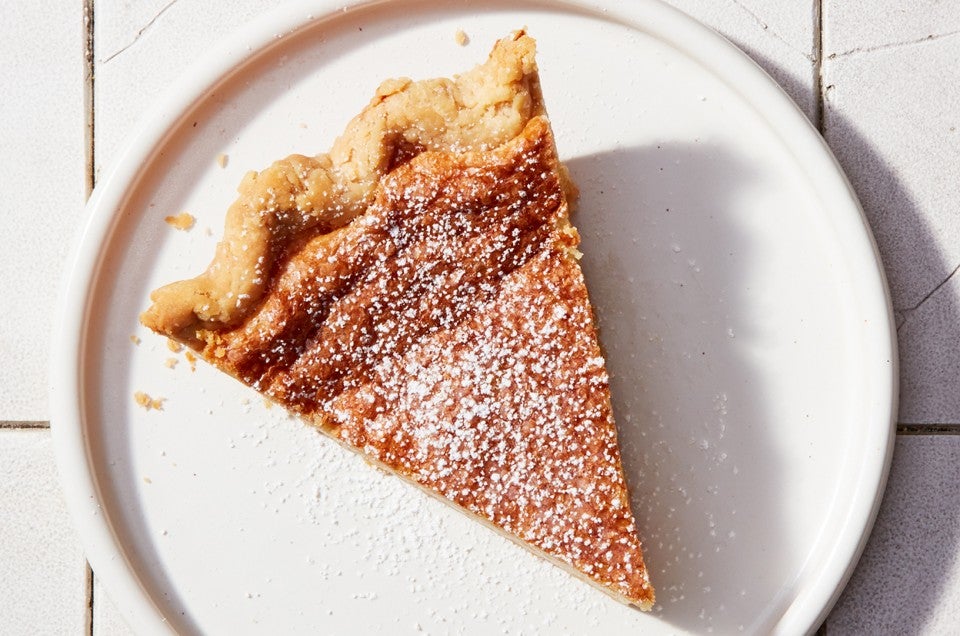Vanilla Chess Pie
The simplest of pantry staples come together to make a sweet, rich vanilla pie that holds a revered place in the pastry pantheon. Our classic version yields a smooth, luscious filling.



The simplest of pantry staples come together to make a sweet, rich vanilla pie that holds a revered place in the pastry pantheon. Our classic version yields a smooth, luscious filling.




Place a rack on the lowest rung of your oven and preheat to 375°F.
To prepare the crust: Roll the pastry out to a 13" circle and place it in an ungreased 9" pie pan. Trim and crimp the edges. Chill the crust for 15 minutes.
Line the pan with foil or parchment, place pie weights inside, and bake the crust for 15 minutes.
Remove the crust from the oven, remove the lining and weights, and return to the oven for 5 more minutes.
Remove the baked crust from the oven and let it cool for 5 minutes.
To make the filling: Whisk together the filling ingredients and pour into the cooled crust.
Place the pie on a parchment-lined baking sheet and bake it for 45 to 50 minutes, until the center is just barely set and the top is golden brown. Remove it from the oven and let it cool completely before cutting.
Refrigerate any leftovers. Store in the refrigerator, covered, for up to 3 days.
Where does the name "chess" come from? Some food historians say it's a takeoff on "cheese," as in English cheese pies, as in American cheesecake — whose filling is of a consistency similar to chess pie. Others say chess refers to the chest in which pies used to be kept; due to the high degree of sugar, chess pies didn't need to be refrigerated (though in these days of heightened awareness of food safety, we do recommend refrigeration). One final theory holds that chess refers to the simplicity of the pie itself. "What kind of pie is that?" "Jes' pie." Chess pie.


